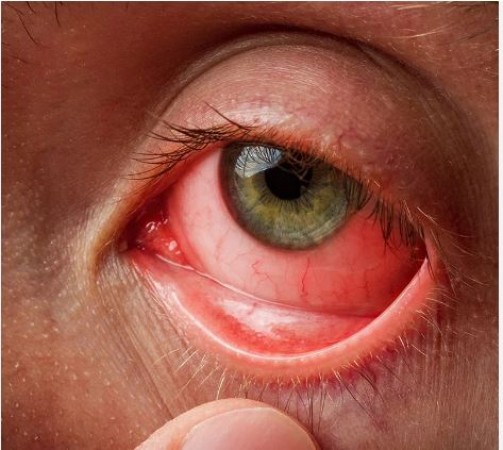
Our eyes are precious, delicate organs that deserve our utmost care and attention. Whether you're dealing with the threat of infection or the discomfort of irritation, here are some crucial tips to ensure your eye health remains a top priority.
The first line of defense against eye infections is simple: wash your hands regularly. Using soap and warm water for at least 20 seconds can help prevent the transfer of harmful bacteria to your eyes.
As tempting as it may be, refrain from touching your eyes, especially with unwashed hands. This can introduce germs and irritants that may lead to infections or discomfort.
When engaging in activities that pose a risk to your eyes, such as sports or woodworking, always wear appropriate protective eyewear. Safety glasses or goggles can shield your eyes from potential injuries.
If you wear contact lenses, adhere to strict hygiene practices. Clean and disinfect your lenses as recommended by your eye care professional to prevent infections and discomfort.
Replace your contact lenses according to the prescribed schedule. Extended use can increase the risk of infection and irritation.
Ensure your eye makeup products, such as mascara and eyeliner, are clean and well-maintained. Replace them regularly to prevent the growth of bacteria.
Never sleep with eye makeup on. Remove it gently before bedtime to prevent eye irritation and potential infections.
A diet rich in vitamins and nutrients, especially vitamin A, can promote eye health. Include foods like carrots, spinach, and sweet potatoes in your diet.
Proper hydration is crucial for overall health, including eye health. Drinking an adequate amount of water helps prevent dry eyes.
When outdoors, wear sunglasses that offer UV protection to shield your eyes from harmful ultraviolet rays.
If you spend long hours in front of digital screens, follow the 20-20-20 rule. Every 20 minutes, take a 20-second break, and focus on something 20 feet away to reduce eye strain.
Ensure your computer screen is at eye level and adequately lit to prevent straining your eyes.
Blinking helps distribute tears evenly and keeps your eyes moist. Make a conscious effort to blink more often, especially when working on screens.
Smoking not only harms your overall health but can also lead to eye problems, including macular degeneration and cataracts. Quitting smoking is a step towards better eye health.
If you have allergies that affect your eyes, consult an allergist or ophthalmologist for effective management strategies.
Schedule regular eye exams with an optometrist or ophthalmologist to detect and address any issues early.
If you experience dry eyes, consider using artificial tears or lubricating eye drops to keep your eyes comfortable.
A good night's sleep is essential for eye health. Aim for 7-8 hours of quality sleep each night.
Stress can negatively impact your eyes. Practice stress-reduction techniques like meditation and deep breathing.
If you notice any unusual symptoms, such as persistent redness, pain, or vision changes, seek immediate medical attention to address potential issues. By following these essential eye care tips, you can protect your eyes from infections, irritations, and other potential problems, ensuring a lifetime of healthy vision.
Kerala HC Calls for Sabarimala Pilgrimage Guidelines Amid Nipah Outbreak Concerns
Nipah virus health crisis in India: no vaccine and up to 75% mortality rate
Shocking Teenager's Health Ordeal: Mild Symptoms Lead to Loss of Hands and Feet